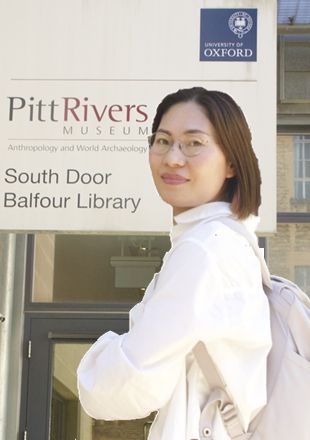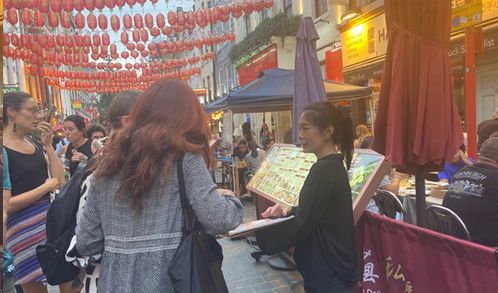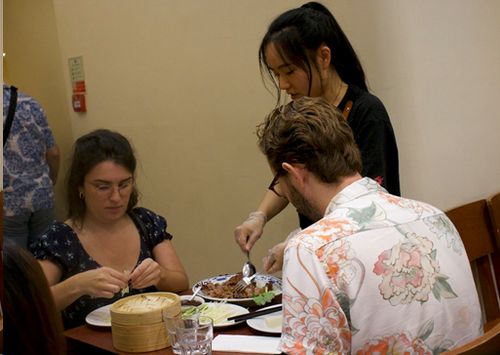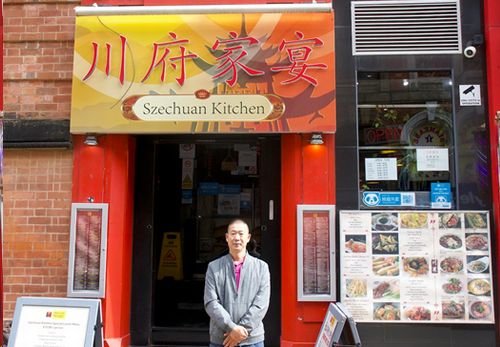From the Frontlines of Research and Studies [England]: Shuangyue BAO (Tohoku University)

The National Institutes for the Humanities (NIHU) sends young scholars, who are participants in Institute-based projects and co-creation initiatives, to international seminars and research institutions abroad, including universities. This program aims to promote NIHU’s projects and support young scholars in their academic studies, presentations at international seminars, and other overseas research opportunities.
In this issue, we feature a report from Shuangyue BAO of Tohoku University, who was dispatched to England.
From July 18 to September 18, 2023, I had the opportunity to visit England as a researcher on the NIHU program supporting overseas research for young scholars.
Research Purpose
My overseas research was part of the "Minority Rights and Media" project undertaken by the Centre for Northeast Asian Studies at Tohoku University as part of the East Eurasian Studies Project of NIHU’s Global Area Studies Program.
Based in Sheffield, I conducted an anthropological study of Chinese restaurants and the way they are run in the city of York and in Chinatown quarters of London and Manchester. The aim was to reconsider the meaning of globalization, not from the perspective of the conventional political and economic order, but from the perspective of the non-Western world centering on China.
This was done by using food as a guide and then analyzing the Chinese diaspora and examples of online communities formed through the use of social networking services.

Research results
In post-war Britain, Chinese immigrants especially from the British colony of Hong Kong, second only to Indian immigrants, rapidly increased in number and developed the food and beverage industry in various parts of the United Kingdom. In recent years, the influx of Chinese students has been accompanied by a surge in the number of so-called 'gachi-Chinese restaurants', offering authentic 'hot and spicy' flavours. This phenomenon is developing against the backdrop of China's economic development and the spread of regional cuisines within China, and also as young people move abroad. Thus, it is clear that the global spread of Chinese cuisine is a phenomenon shaped by the multilayered and frequent movement of people within China and abroad.

In the UK, there has been a dramatic increase in of foreign students from China with ample financial means and a vigorous consumer appetite, which has led to a pronounced boom in consumption, particularly in the food sector. The background to this boom is that the UK actively creates an institutional and university environment that welcomes international students, with the aim of stimulating the economy. In short, the UK has adopted a strategy of industrializing education in line with the needs of Chinese students for academic qualifications, forming a mutually beneficial relationship.

Chinatowns around the world, including London and Manchester, have been communities of Chinese immigrants and have supported continuous migration. Today, however, online Chinese communities are being formed outside of China, utilizing social networking sites. Specifically, Chinese apps are being used to transmit and acquire information, as well as sustain a complete economic system of accounting in Chinese yuan using WeChat pay. Thus, in the U.K. we can observe the formation of a virtual online Chinese social system mediated by SNS.
Shuangyue BAO
Ph.D. (literature). Assistant Professor, Tohoku University.
Born in Inner Mongolia. Research specialty is sedentary agriculture of the Mongolian people, and border-crossing consumption and acceptance of Chinese and other ethnic cuisines.
